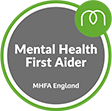
BOUNDARIES: What is ok and what is not ok?
How to define, set and keep boundaries. As the holiday season fast approaches and many of us have been tested to our limits already this year, now might be a good time to remind yourself of your own personal boundaries.
Firstly, you are not selfish for setting your own boundaries. Research Professor Brene Brown defines boundaries as ‘simply our lists of what’s okay and what’s not okay’. Whether it’s emotional, physical or mental, setting your own boundaries can create a better and more healthy sense of what your personal needs are and what your personal needs are from others.
3 stages of setting and keeping a boundary:
1 - Define your boundary
2 - Set your boundary
3 - Keep your boundary
1 - How do I define my boundary? What is the issue and what do I need to achieve? (having boundaries in place means your need can still be met, but in a much healthier way). Is my boundary acceptable and realistic? How long do I need this in place? When and where will I set this boundary? What do I really want? Do I genuinely want to help that person?
2 - How do I set my boundary? Make a list of things that I no longer want people to say or do to me and or do around me. Think about how people have taken advantage of me in the past, the times when I have said yes but really I wanted to say no. Remember, No. Is a complete sentence! What are my emotional, physical or mental needs? The clearer you can become on how you want to live your life, and what values you want to hold true to you, the easier it will be to communicate your personal boundaries
3 - How do I keep my boundaries? I need to take ownership and responsibility of my personal boundaries, notice if the boundary is being kept and acknowledge when it has been broken. I also need to decide how I am going to respond when the boundary has been broken.
When you are clear about your boundaries and you start applying your personal boundaries you will feel more empowered and self-confident, the more consistent you become the more clearer you'll be in your communication and those around you will understand what is and isn’t okay.
Some suggested ways of being more assertive to meet your boundaries:
I’m really busy at the moment. Perhaps you could ask xxx to help. If not, I’ll have time later in the week (only say the second part, if it aligns with your boundary and your schedule!!) I hate to disappoint you, but I can’t do that. I’m afraid that’ll stretch me too much. Thank you for asking me but my plate is full right now. Thanks for inviting me but I already have something in my diary/my schedule is full at the moment.
Again Remember, No. Is a complete sentence!




